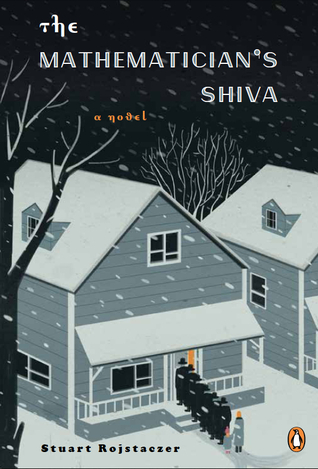More on this book
Community
Kindle Notes & Highlights
My mother never needed a microphone. When she spoke it was with the cadence of an oracle. She had been banned from teaching calculus at her university simply because she scared the hell out of freshmen.
“He studies hurricanes, flies inside them to make measurements. It causes us a great deal of worry.” My father went back to his notebook. “It’s good to have parents who care about you,” the priest said. “Even at fifty-one, yes, I think it’s probably true,” I said.
Her craziness was happily wed to her intellect. There are no reasonable geniuses in this world, I am convinced.
You can put me in a Jewish cemetery, I suppose. I won’t be able to object when the time comes, anyway.” “I’ll need your signature attesting to your Jewish faith.” “You aren’t telling me anything I didn’t already figure out. It’s a good thing I’m an atheist. You, however, have to play whack-a-mole with your sins.”
What does prayer provide me, the most ordinary of sinners? A sense that my frailty is communal, a sense that I shouldn’t be singled out for my human failures, or my attempts, however pathetic, to rid myself of them.
“See. That mamzer screwed her up for life with his stupid stories. You writing stories about turning into a cockroach?” “No. Different stuff.” “A ladybug maybe? A tuna fish?”
Poor Kafka. No wonder he wrote such tortured material. Perhaps with enough Metamucil his writing would have been happier. Perhaps he wouldn’t have written at all. I woke up thinking of a happier Kafka, one my grandfather would approve of, one who wouldn’t steal my grandfather’s betrothed, and one who couldn’t possibly nourish the soul of a sixteen-year-old son of mathematicians stewing in his room.
“I am angry. I am upset. My mother dies and I have to deal with these idiots.” “It’s entertainment, Sasha. You know that. We’re going to put on a show for them. Make a good strudel. Then we can be ourselves.” “Well, there have to be rules about this strudel. I’m going to campus. I’m laying down the law. You think I stand a chance of getting through to them?” Bruce paused before he said a word, something uncharacteristic of him. He tilted his head and looked upward. Then and there, he reminded me a bit of Pascha the parrot when someone she liked was approaching her cage. “Not a chance in hell,”
...more
I could feel the ache inside my lungs. A quad muscle in my thigh began to tremble. I thought of my grandfather and what he would have said to me had he been there: “Shtark zich.” Make yourself strong.
You have to know what you are seeking, are often blind, and have to rely on the feel that comes with experience. Even then, when you finally have something tangible in your grasp, you still have a lot of work and struggle. Immigrants to this country and their children tend to understand this. Americans? Not really. It’s why they don’t often excel in science.
Tornadoes are a good metaphor for how bad things happen in our lives. They build from small disturbances that usually don’t mean a thing and almost always dissipate. But somehow one particular random bad event attracts others, and all of them together grow and attract more nasty stuff. Once it gets up to a critical size, the odds of it growing even larger are no longer remote.
I opened the door into the greenhouse. Now, dear reader, don’t try to read symbolism into this. Cynthia Czerneski was in the greenhouse, yes, but she is not a hothouse flower from the South trying desperately to survive the cold of Wisconsin. This story is not a Tennessee Williams play. Cynthia Czerneski does not depend on the kindness of strangers.
There are no Nobel Prizes in mathematics, which urban legend says is the result of Nobel’s wife screwing a mathematician (studying the topology of curved spaces, no doubt, haha), but really now, this seems far-fetched.
Just like life has its origins in ordinary elements, the foundation for human creativity is ultimately quotidian.
Our capacity for love isn’t like a gallon jug that you fill up from rest stop to rest stop as you take a drive across the country. It can swell, and sadly, it can shrink. Less is not more. Less is less, and more is better,
There was not the slightest doubt in my mind that my family would blossom and that sunshine would follow us most days. I still have moments like this. I don’t understand where they come from. It’s a muted form of the American view that by destiny all things in life end happily. It’s a flaw of the mind really, this rosy view, but I am thankful that this flaw exists in most of us.
To Americans, the outward display of intelligence is considered unseemly. The Donald Trumps of the world can boast about their penthouses and Ferraris, their women can wear baubles the size of Nebraska, and no one says boo. If you have money, you’re almost always expected to flaunt it. But intellect? This is something else entirely. Women, especially, are supposed to play dumb. One of the richest men in America has said publicly that if your SAT score is too high, find a way to sell 200 points. Supposedly you don’t need them.
We, of course, don’t get to choose our parents. We don’t get to choose where we are born, either. We are adaptable creatures, though, and genetics often means that our families share innate attitudes, emotional responses, and intellectual traits that make us feel an intimacy much closer than what can be produced by simple day-to-day interaction alone.


